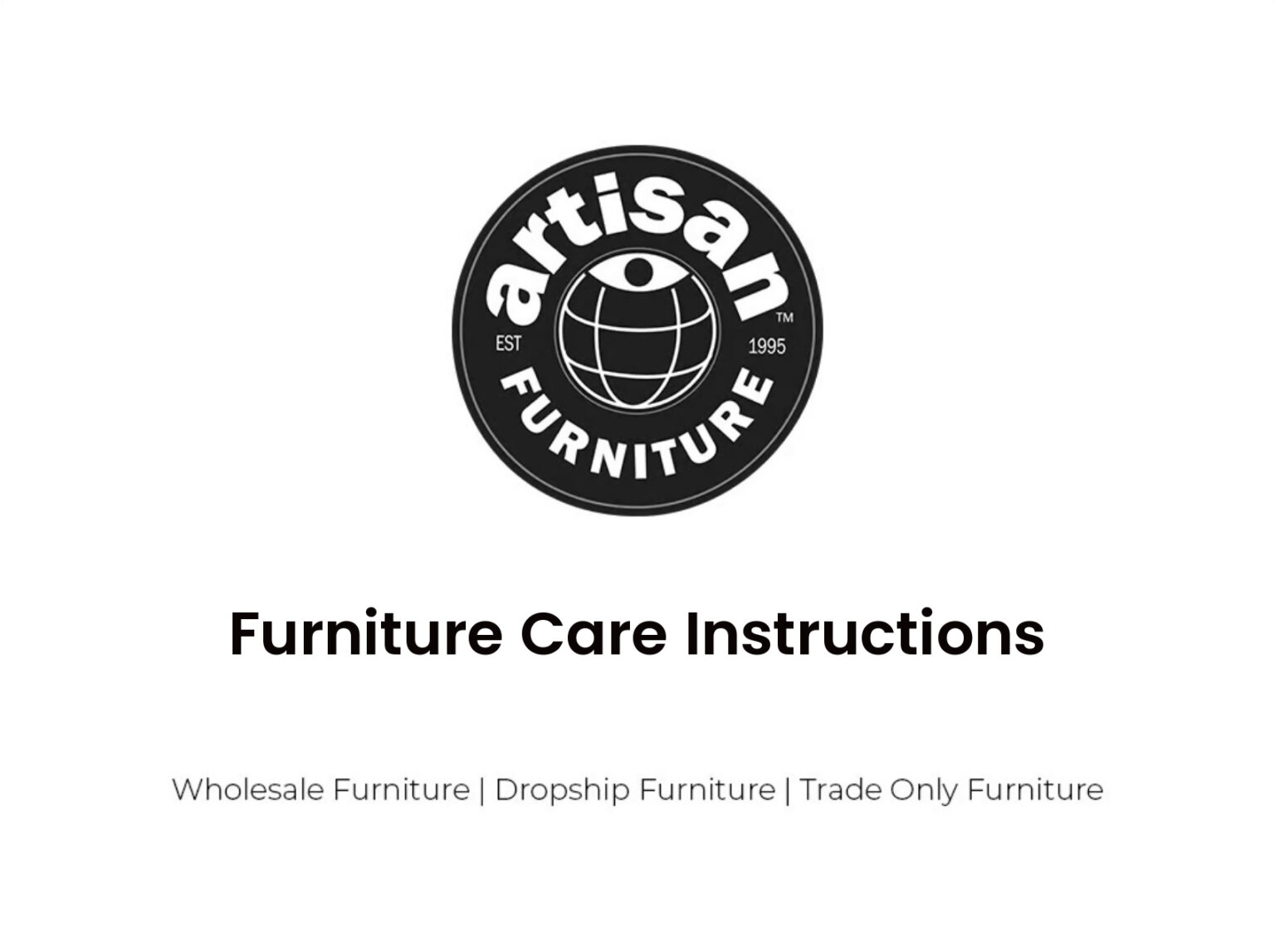
Furniture Care Instructions
Please do follow our aftercare instructions to enhance the life of your furniture!
100% of our products are hand-crafted individually using solid wood.
Wood is ‘live’, hence it is important to ensure that you take care of the furniture.
Avoid placing your furniture under direct sunlight and/or near radiators. Also, occasionally polish the non-painted furniture parts with bees wax to retain sheen and for longer lifespan.
Avoid placing your furniture close to the radiator or in direct sun light, to avoid movement in the timber and to prevent your furniture from decaying. Natural wood isn’t water- or heatproof and is not a fan of chemicals. We highly recommend using a coaster to protect your furniture. If there’s a spill, wipe it up immediately with a lint-free cloth.
To remove everyday household dust and dirt, clean by gently vacuuming fabric with an upholstery brush. Periodic cleaning of the entire product is required to maintain appearance and reduce premature wear and fading.
Do not rub, soak the fabric or allow stain to dry. Do not use proprietary cleaner or any other household cleaners. Contact professional upholstery cleaner.Don’t forget to give your cushions a good shake every week or so to help them keep their shape. And keep all upholstered pieces out of direct sunlight to avoid the colour fading.
For routine cleaning, we recommend the use of a suction type vacuum cleaner. Most light dirty marks can be cleaned with a damp cloth. Do not machine wash or dry clean your rug and clean any spills immediately. Lay the rug on a flat surface and blot any liquids with a dry absorbent cloth or a white paper towel. If a stain cannot be removed you should seek specialist cleaning advice and avoid harsh chemicals as they may damage the rug. Do not machine wash or dry clean your rug.
With the 80% wool 20% cotton rugs it is completely normal for all wool rugs to shed some fibers; this is a natural characteristic of wool as a material. Shedding does not affect the life of a rug and we recommend regular vacuuming to remove any excess fluff/fibers.
Some rugs are also prone to what is known in the rug industry as sprouting or pilling. This is where some strands/threads of the pile will appear that are longer than the rest of the pile. When this happens all you need to do it trim any longer strands with a pair of sharp scissors. It is important that you do not try to pull these long threads as this can damage the rug.
Due to the way rugs are packaged and stored you may notice that when you unroll your rug there are lines or crease marks running across the width of it. These lines / creases are not permanent and will gradually fade with normal use and regular vacuuming.
PACKAGING
In terms of packaging the rugs are wrapped around a cardboard tube to make sure that they are kept neat. A cap is added on both ends of the tube to protect the edges of the material and a plastic layer is added on top to protect the material. Two cardboard pieces are added underneath the string to avoid marking the rugs. The rugs are then placed in a draw string bag to ensure that they are secure (this bag is reusable)
The rugs will not lay completely flat in the first few weeks of unrolling them. This is not a fault with the rug; it is only temporary until the rug takes to its new shape being rolled out. You should find that the rug will gradually flatten until it does lay flat.


